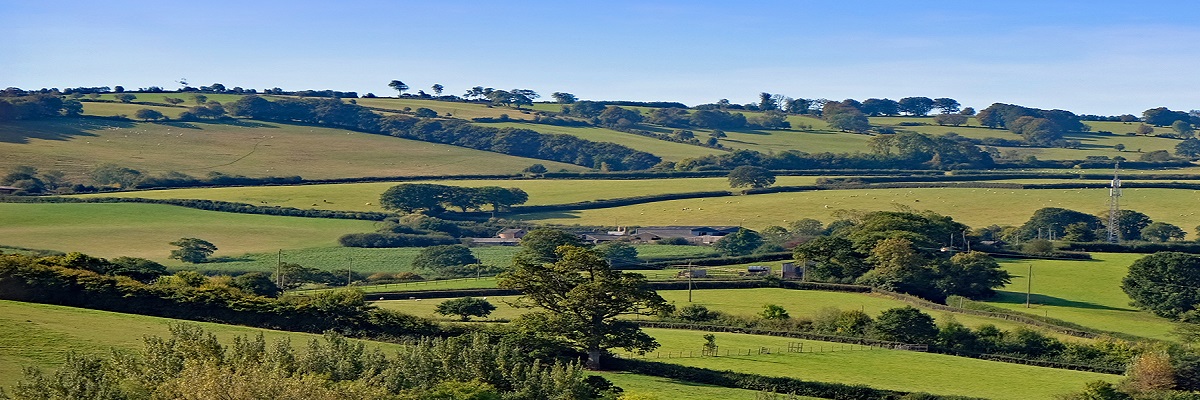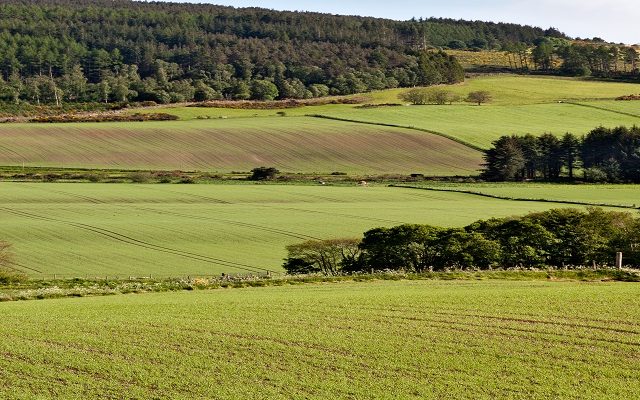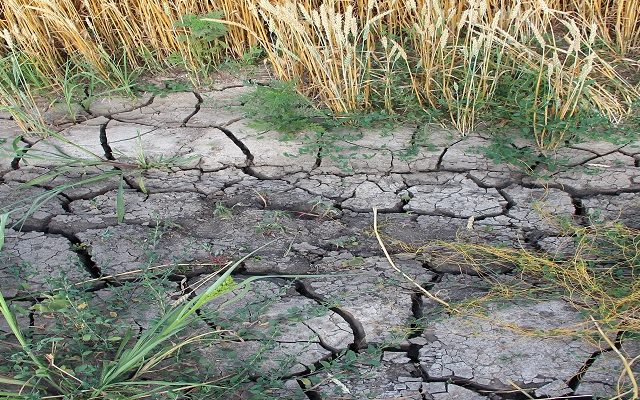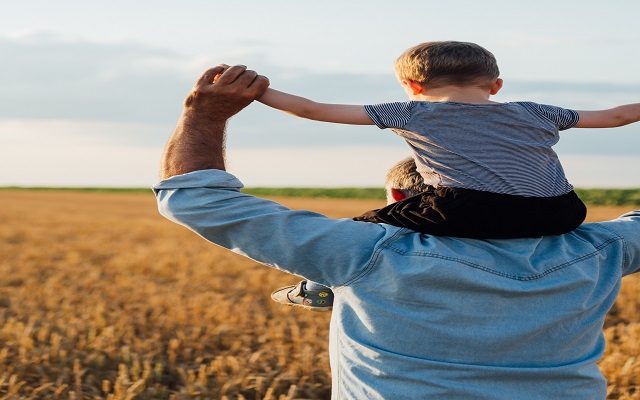Farm policy update | February 2024
Years have passed since the UK voted to leave the EU, so Strutt & Parker’s expert team has analysed what progress has been made in rolling out the domestic agricultural policies in each of the devolved regions.
ENGLAND
Defra was first off the blocks in terms of the move away from supporting farmers through the Basic Payment Scheme (BPS) and is now approaching the halfway point of its agricultural transition plan.
The Agriculture Act, which took effect in late 2020, was meant to herald a more dynamic, self-reliant agriculture industry’ with a set of new Environmental Land Management schemes (ELMs) introduced as a mechanism to meet important climate change and environmental objectives.
Sadly, while the vision for removal of the BPS by 2028 has been robust and clear-cut, the policies for the new environmental support schemes have been bogged down in continuous development, reappraisal and changes in direction.
The challenge
In a bid to engage farmers, landowners and other stakeholders with the design of each of their policies, Defra has followed the concept of co-design. In principle, this has been laudable, but it has also undoubtedly delayed scheme development and led to frustrating changes in direction.
This has been seen most clearly with the new Sustainable Farming Incentive (SFI) scheme which pays farmers to undertake specific environmental management activities, with rates based on the areas of land managed under the different actions. Fundamentally, it’s not dissimilar to the Countryside Stewardship scheme (CS), although it has a rolling application window.
However, the first iteration of SFI proved to be quite complicated and payment rates were not sufficiently attractive to warrant farmers’ attention when there were more-pressing matters to attend to, such as soaring input prices and market uncertainties resulting from the war in Ukraine.
Defra’s decision to terminate all the 2022 agreements and introduce a re-modelled scheme in 2023 also dented confidence. That said, the latest version – which offers higher payment rates and will include 50 new options from the summer – is attracting quite significant levels of interest.
On the face of it, this is very positive as Defra needs high uptake of the scheme to meet its environmental targets. However, some stakeholders are questioning the level of land coming out of production and asking whether the scheme is compatible with sustainable food production (despite the UK having a high proportion of land that is farmed). Environmental stakeholders are also concerned that farmers may not choose options that deliver the biodiversity outcomes that are needed.
Looking forward
We know that by the end of 2024, legacy BPS payments will have reduced by at least 50%, with larger arable businesses experiencing bigger cuts. It is true that farmers have been through a particularly difficult period and there are still uncertainties, but business plans still need to be made to ensure a sustainable future.
When planning, it’s important to think about the big-picture, high-level strategy first, as a sustainable future may only be possible by making difficult decisions or embracing big changes. Then you think about the smaller matters. Remember, though, lots of small changes can make a big difference. Some of the productivity grants on offer through the Farming Investment Fund represent the best opportunity that we have seen in a long time for support to change ways of working.
In general, it is unrealistic to expect entry into one of the ELMs schemes to fill the financial gap left by the phasing out of BPS. Under the old EU regime, farmers were paid BPS in addition to any profit they made from environmental schemes and from farming. The new environmental schemes require farmers to stop or to change agricultural production on some land and to carry out positive environmental management activities to receive payments. This means the ‘profits’ from the environmental payments are often small compared with Basic Payments.
However, this does not mean that farmers should not engage with these schemes. In many cases, incomes and environmental outcomes will be improved through a well-thought-out environmental scheme.
SCOTLAND
Scotland has been very slow in formulating new policies for agriculture, with farmers complaining that for too long they have had little to go on other than rehashed ‘route maps’ for agricultural reform and a lot of rhetoric regarding a Vision for Agriculture’.
The aim, in theory, is to maintain a form of support that most closely resembles EU policy. In September 2023, the Scottish Government finally introduced a draft Agriculture and Rural Communities Bill to Parliament. The Government has also announced its intention to bring forward another Land Reform Bill, which will address transparency about land ownership and further modernise agricultural tenancy legislation.
The challenge
As far as support is concerned, we are currently in a transition phase with Basic Payments being paid as normal in 2023 and 2024. However, from 2025 the Scottish Government is introducing new conditions that must be met for farmers to be eligible. The new funding structure will be divided into four Tiers. Tier 1 will be the base level of the scheme through which farmers will be able to secure approximately half of the new BPS payment.
Additional funds will be available through the other three tiers (see table), but even with the draft Bill there is very little detail available on the implementation of these new schemes, and even less indication of how much money is available. This is becoming increasingly frustrating for farmers who cannot budget or plan effectively for the future, despite 2025 fast approaching.
The areas of most concern are the Government’s stated aim to become a global leader in regenerative agriculture which in practice is not simple and will be different for each farm and the reliance on carbon audits as a measure of performance.
Other aspects of government proposals that are causing worries among farmers and landowners are measures to introduce licensing for hunting and shooting and attempts to limit land ownership. In addition, legislation to control short-term lets is having an adverse impact on farms and estates with holiday cottages.
Experience suggests that some of these measures will be more successful than others, and there will no doubt be unintended consequences attached to some of them.
Looking forward
In the meantime, land managers can apply for the Preparing for Sustainable Farming scheme which offers funding towards the costs of a carbon audit, soil sampling and analysis, and animal health and welfare interventions, such as faecal egg counts, screening for diseases and lameness assessments.
There is also support for ‘development activities’ which is effectively time spent learning about the best practice for soils and animal health. This funding will cease in 2025, as these measures will become part of the conditions of subsidy.
Support is also still currently available through the Suckler Beef Support Scheme and the Scottish Upland Sheep Support Scheme. These schemes offer coupled payments that are worth around £100 per beef calf and £61.25 per ewe hogg (on Region 3 land only).
From 2025, the Beef Calf payment will be conditional upon meeting a target for calving interval (yet to be defined, and potentially contentious) and while the ewe hogg payments are expected to continue in 2025 and 2026 they may be delivered using a different model.
For now, our advice to farmers is to remain clear in your objectives and improve business performance in the areas you can control, so you are managing your business to the best of your ability.
WALES
Wales has taken more time over its transition to a home-grown set of policies.
It now has an Agriculture Act that lays the framework for its policy on land, which is called Sustainable Land Management, and its farming support scheme, called the Sustainable Farming Scheme (SFS).
Basic Payments will continue to be paid in full until the end of 2024. From 2025 farmers will either enter SFS or BPS (but not both). Farmers will have their BPS cut by 20% each year starting in 2025, making their final BPS claim in 2028.
It feels like policy design of the SFS has been very deliberate, based on co-design and much more structured (so has more in common with the Scottish approach than the English one).
SFS is a voluntary scheme and the Welsh Government has been clear on what land managers have to do if they decide not to join. Existing legal requirements must be met through national minimum standards’ – again this feels much clearer than in England, where there is almost no willingness on the part of the Government to discuss the regulatory baseline.
The challenge
Land managers will have to carry out all applicable and feasible ‘universal actions’ under the scheme to receive the standard payment. There is lots of debate on scheme design and, in particular, on the universal actions that will require 10% of the area of a farm to be managed as habitat, including hedgerows and established broadleaf woodland which is in ‘good condition’.
Some farmers have questioned the impact this might have on food production and the economic viability of some holdings.
The Welsh Government’s response is that a balance needs to be found between food production and the climate and nature emergencies.
Looking forward
The Welsh Government is currently in the middle of its final consultation on proposals for the SFS. This will close on 7 March 2024.
This provides a much clearer picture for land managers of what is expected and it feels like, due to the emphasis on national minimum standards and universal actions, that the four overarching objectives are more likely to be achieved than by the ‘pick and mix’ design of the English ELM scheme. However, it is evident the tree cover and habitat targets do remain a real sticking point for many farmers.
ENGLAND | SCOTLAND | WALES | |
Legislative position | Agriculture Act passed in November 2020. | Draft Agriculture and Rural Communities Bill published in September 2023. Land Reform Bill timetabled for 2023/24 | Agriculture (Wales) Act 2023 passed in August 2023. Final Sustainable Farming Scheme consultation closes 7 March 2024. |
| Position with Basic Payments | BPS payments are being reduced over a seven-year transition period, with final BPS due in 2027. | BPS payments to continue, but with new conditions introduced in 2025. | BPS will continue until 2025, when a four-year transition will start. |
| Key schemes replacing the BPS | Three Environmental Land Management schemes: Sustainable Farming Incentive (SFI) – Open to all and pays farmers for undertaking specific environmental actions. Countryside Stewardship scheme (CS) – Competitive scheme paying for more targeted environmental actions. Landscape Recovery scheme (LR) – Highest level of environmental land management offering long-term, bespoke agreements over large areas. Plus, capital grant schemes to help farmers to reduce costs and increase productivity. | The framework for support from 2025 is as follows: Tier 1 will offer a base level of support conditional on meeting standards focused on efforts to address climate change, biodiversity and business efficiency. Tier 2 will offer an enhanced level of direct funding and will be introduced from 2026. Tier 3 will offer targeted support through competitive schemes similar to the Food Processing and Marketing scheme and AECS schemes, alongside measures for innovation and possibly diversification. Tier 4 will offer funding for training, support and advice, and aspects of the current Forestry Grant Scheme. | The Sustainable Farming Scheme (SFS) will start in 2025, after a ‘prepare and pilot’ stage from 2022 to 2024. The SFS will be a voluntary scheme with five-year agreements. It will have three layers: Universal actions – which all land managers entering the scheme should carry out. Optional actions – which land managers can choose to do for an additional payment. Collaborative actions – which multiple land managers can do at a landscape, catchment or national scale, such as creating interconnected habitats or developing supply chain opportunities. During the transition period a Stability Payment, in addition to the Universal Baseline Payment, will be offered to farmers who join the SFS to top it up to the same level as their ‘notional’ BPS payment. |
A version of this article first appeared in the Autumn/Winter edition of Land Business magazine. The contents have been updated to reflect changes since publication. Download a copy of the full Land Business publication.






